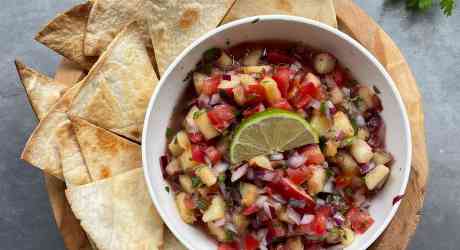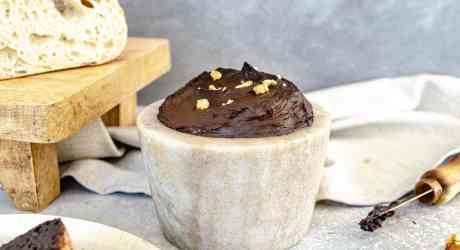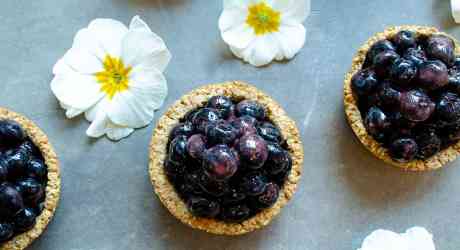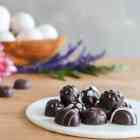Creamy Cucumber Salad
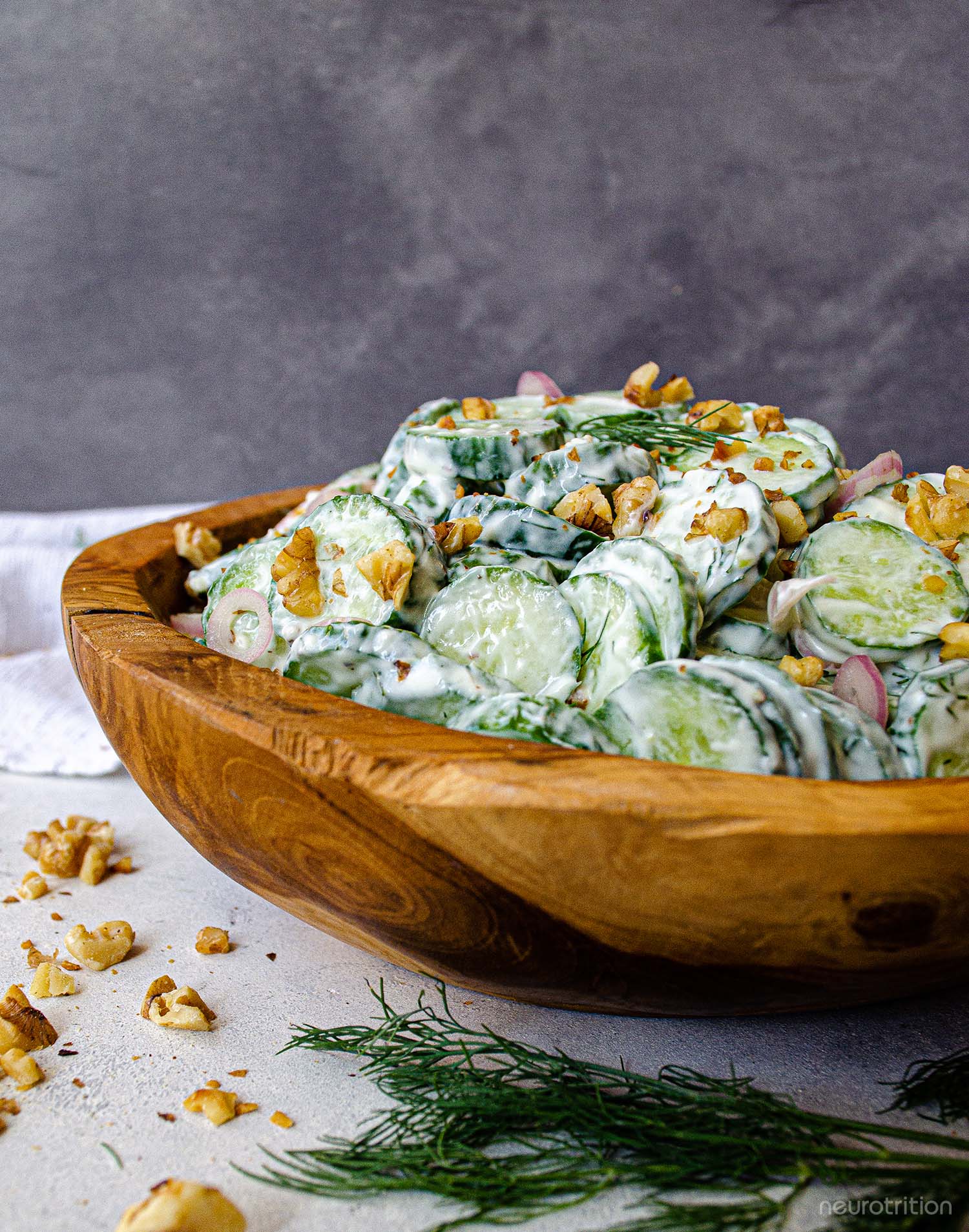
Cucumbers just might be my new favourite berry.
Yes, a berry — not a vegetable, like most of us think. And at 97% water, they are the #1 most water-dense food out there (fruit, vegetable, or berry) to keep us hydrated. This also makes them incredibly low calorie, at only 8 calories per 1/2 cup serving. But that’s not all: Cucumbers contain polyphenols (like other berries), that stimulate the growth of “good” gut bacteria and inhibit the growth of “bad” ones. They also contain a special type of fibre called inulin, which is a naturally occurring prebiotic (the favourite food of our “good” gut bugs).
To increase the gut-brain loving factor - and deliciousness quota - of cucumbers even more, we made a creamy cucumber salad using the most studied probiotic food: yogurt (you can use dairy or dairy-free yogurt). We also loaded this simple salad with more prebiotic foods: Garlic, dill, and shallots. We couldn’t forget about healthy fats for brain and gut health, so used monounsaturated fat-containing extra virgin olive oil and polyunsaturated fat-containing walnuts. For a hint of sweetness, we added just a 1/2 teaspoon of raw honey (also a rich source of prebiotics) to this refreshing recipe that serves four.
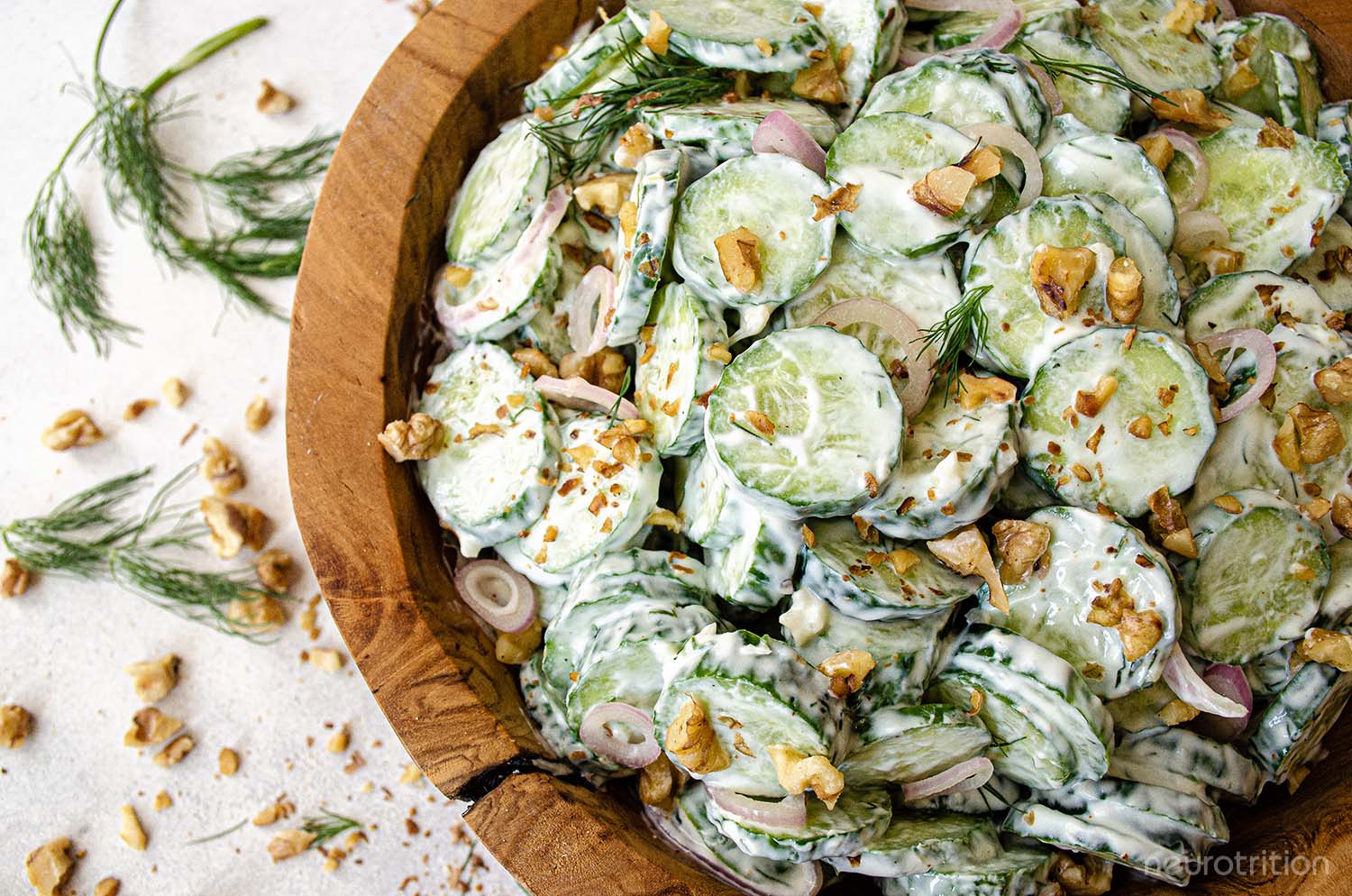
Pickled shallots:
- 2 shallots, peeled and sliced into very thin rings
- 1/2 cup organic raw apple cider vinegar
- 3/4 cup warm water
- 1/2 tsp raw honey
- 1/2 tsp sea salt
- 1/2 tsp whole peppercorns
- 1 garlic clove, peeled and cut into thin slices
Yogurt dressing:
- 1/2 cup plain yogurt of choice*
- 1 small clove of garlic, peeled and micro-planed or pressed
- 1 Tbsp organic extra virgin olive oil
- 1/2 Tbsp white wine vinegar
- 1 tsp fresh organic dill, chopped
- Pinch of salt and pepper
Salad:
- 1/3 cup raw, shelled walnut halves
- 10-12 mini cucumbers
- Set oven to 350 F.
- Begin by making the pickled shallots: Combine sliced shallots, apple cider vinegar, water, honey, salt, peppercorns and garlic slices into a mason jar, and shake to combine. Set aside or in the fridge.
- Roughly chop the raw walnuts, place on a cookie sheet and toast for 7-10 minutes until brown and fragrant, flipping them occasionally. Set aside to cool.
- Combine all yogurt dressing ingredients together in a small bowl, and stir to mix.
- Slice cucumbers into thin rounds, and toss with yogurt dressing and 1/4 cup of the drained pickled shallots (or more to taste).
- Plate each portion and add desired amount of walnuts (and a sprinkle of more fresh dill, if desired).
*We recommend Greek or Skyr yogurt because it is a thicker consistency, but any full fat yogurt, including dairy free yogurt, will work.
This salad as a whole is best consumed the same day it is made, but will last 1-2 days longer in a sealed container in the fridge. Left-over pickled shallots should be refrigerated and will last 1-2 weeks in a sealed mason jar with the vinegar mixture. Alternatively, the dressing and pickled shallots can be made 1-2 days in advance and kept in the fridge until ready to make the salad.

Cucumbers:
- The antioxidant activity of cucumbers is just one of the reasons they are a key component of the heart- and brain-healthy Mediterranean Diet.
Yogurt:
- Greek yogurt is packed full of protein and lots of healthy probiotics which are key in digestion and a healthy gut.
- There is a big connection between gut bacteria and mental health, and this type of yogurt may balance the brain activity affected by stress, stabilize moods and lower anxiety.
Walnuts:
- Learn why they’re one of our Brain Food Essentials, in our blog about them!
- References
-
- Takada, M., Nishida, K., Kataoka-Kato, A., Gondo, Y., Ishikawa, H., Suda, K., Kawal, M., Watanabe, O., Igarashi, T., Kuwano, Y., Miyazaki, K., & Rokutan, K. (2016). Probiotic Lactobacillus casei strain Shirota relieves stress-associated symptoms by modulating the gut-brain interaction in human and animal models. Neurogastroenterology & Motility, 28(7), 1027-1036.
- Naureen, Z., Dhuli, K., Donato, K., Aquilanti, B., Velluti, V., Matera, G., La-Conelli, A. & Bertelli, M. (2022). Foods of the Mediterranean diet: citrus, cucumber and grape. Journal of Preventative Medicine and Hygiene, 63(2 Suppl 3): E21-E27.
